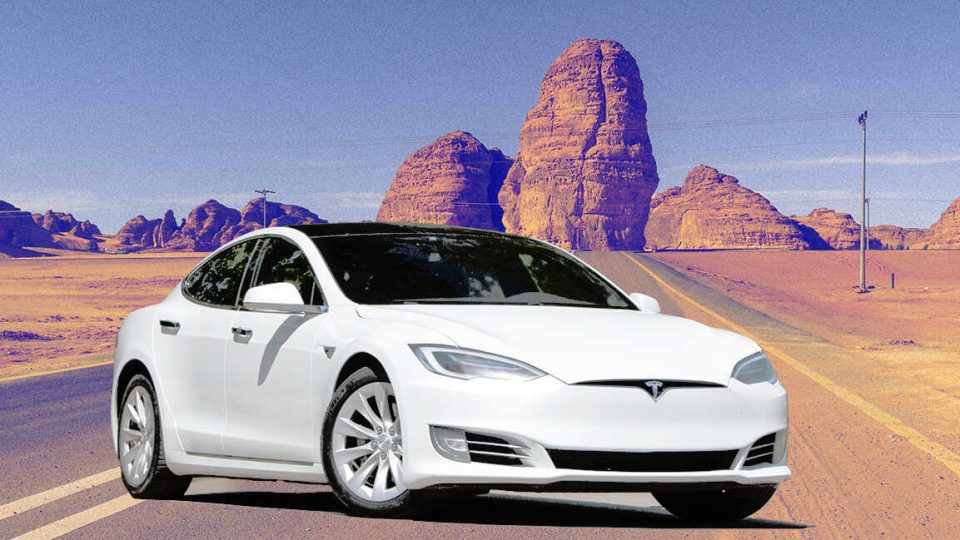Tesla, Inc. (NASDAQ: TSLA) has officially launched its operations in Saudi Arabia, marking a significant milestone for the electric vehicle (EV) giant as it enters the Gulf region’s largest market. The launch event, held on April 10, 2025, at Riyadh’s Bujairi Terrace, showcased Tesla’s cutting-edge technology and ambitions in a country traditionally dominated by oil-based transportation.
Saudi Arabia’s automotive market, which sees annual sales of approximately 700,000 vehicles, has historically been dominated by internal combustion engine vehicles, with SUVs accounting for the majority of purchases. Electric vehicles made up just 1% of all car sales in the kingdom as recently as 2024, according to PwC. However, the Saudi government is actively working to change this dynamic by offering tax exemptions, subsidies, and building a robust EV charging infrastructure to encourage adoption.
Tesla’s decision to enter Saudi Arabia aligns with these developments and reflects the company’s strategy to tap into emerging markets with growth potential. The kingdom’s Public Investment Fund (PIF) has already demonstrated its commitment to the EV sector through a majority stake in California-based Lucid Motors and plans for local EV manufacturing. Tesla’s arrival adds another layer to Saudi Arabia’s efforts to diversify its economy and reduce dependence on oil.
The launch event highlighted Tesla’s global lineup of electric vehicles and innovations in renewable energy and artificial intelligence. Attendees were introduced to Tesla’s autonomous driving technology through its Cybercab concept and witnessed demonstrations of Optimus, the company’s humanoid robot designed for AI-driven tasks.
Tesla also used the occasion to address practical concerns for prospective buyers in Saudi Arabia. Representatives provided information on Tesla ownership, home charging solutions, and the broader benefits of transitioning to electric mobility.
Tesla’s entry into Saudi Arabia comes at a critical time for the company. While Tesla remains a dominant player in the global EV market, it has faced declining sales in Europe and controversy in North America due to CEO Elon Musk’s polarizing public image. In contrast, Tesla enjoys strong brand recognition in Saudi Arabia, with many locals expressing enthusiasm about the company’s arrival.
However, challenges remain. Toyota and Hyundai/Kia currently dominate Saudi Arabia’s automotive market with a combined 55% share. Chinese automakers have also gained traction, securing 10-15% of the market. Competing in this environment will require Tesla to offer compelling value propositions tailored to local preferences, such as SUVs that align with consumer demand.
Additionally, while Saudi Arabia is making strides in EV infrastructure development, it is still early days for widespread adoption. Tesla will need to invest significantly in Supercharger networks and service centers to ensure a seamless customer experience.
Tesla’s move into Saudi Arabia underscores the kingdom’s growing interest in positioning itself as a hub for sustainable transportation. The government’s Vision 2030 plan aims to reduce reliance on oil and foster innovation across various sectors. By attracting global players like Tesla while nurturing local champions such as Lucid Motors, Saudi Arabia is signaling its intent to become a key player in the global EV ecosystem.
For Tesla, this expansion provides an opportunity to solidify its presence in the Middle East while contributing to an emerging market that aligns with its mission of accelerating the world’s transition to sustainable energy.
As Tesla begins operations in Saudi Arabia, its success will depend on navigating local market dynamics while leveraging its technological edge and brand appeal. This launch could mark the beginning of a transformative chapter for both Tesla and the kingdom’s automotive landscape.

